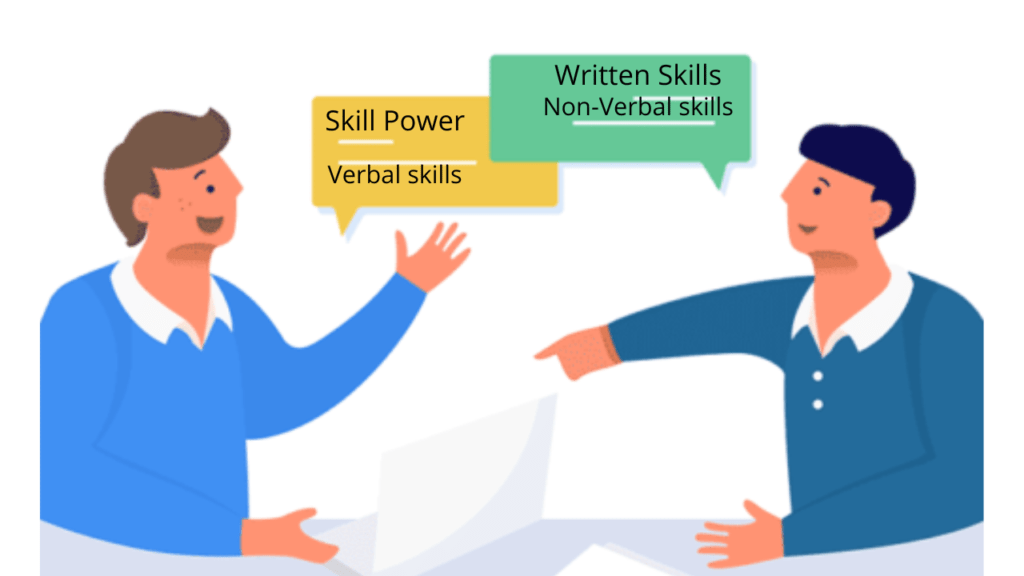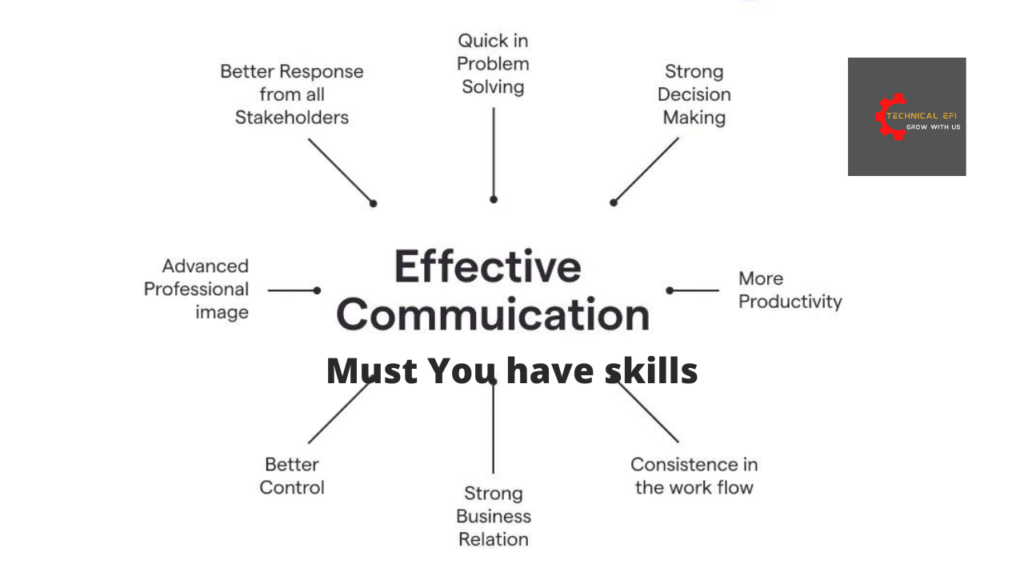Your capacity to successfully deliver and receive information is referred to as having communication skills. There are many distinct abilities that go into being a good communicator (discussed below), but they all share one thing in common: they make working with others much simpler and more efficient.
If your soft skills are lacking, you may not be able to overcome your disadvantage. One of these talents that are very important is communication since, without it, you cannot build the relationships you need to advance. It is fair to state that you won’t be able to advance very far without a “decent” level of communication, therefore if this is an area where you struggle, you must improve.

What Are Communication Skills?
Your ability to communicate well both orally and in writing allows you to express yourself in a positive and concise manner. These abilities require the ability to communicate ideas in a clear, concise manner while maintaining the main point.
Keep in mind that communication is a two-way street, so you must also be able to listen. This makes it much simpler for you to follow directions, ask for things, learn new things, and communicate information. Despite being considered “basic,” communication skills are likely the set of abilities that employers seek out most.
Why is Communication Important in the Workplace?
Communication skills are crucial regardless of your position or degree of responsibility. Verbal communication abilities were actually ranked first among the “must have” skills and attributes of job hopefuls, according to a 2016 study by the British National Association of Colleges and Employers (NACE). Poor communication has an impact on productivity, morale, and efficiency at work.
Your communication abilities will be put to the test in an interview, which is one of the things about them. Speaking to a group of strangers clearly and concisely while displaying a strong vocabulary, making eye contact, conveying pertinent information, and expressing your personality are all required. It’s likely that your communication skills are fine if you can get through that trauma.
Effective Communication Skills

Written Communication
After centuries of use, the printed word is still potent, and we shouldn’t just link it with writers and journalists. For instance, poorly written sales pages will seriously harm the reputation of your brand. If you think your writing abilities are lacking, be sure to improve them.
Verbal Communication
Even though it only makes up 7% of communication, this has to do with the things we say. To determine how to move forward, you must evaluate the conversation. To explain a difficult job procedure to co-workers, for instance, use short phrases and speak slowly as you would to a toddler.
Reflection entails checking your understanding by repeating what someone has said to you. Use this if you frequently misinterpret someone’s meaning.
Non-Verbal Communication
It is quite significant because 93% of what we “speak” is nonverbal. It comprises tone of speech, body language, eye contact, and hand gestures. Make a point of standing with your legs relaxed and your arms open. You will be perceived as more approachable and kind, and people will be more inclined to try and speak with you.
Telephone Communication
When speaking over the phone, you should adopt a cheerful tone, naturally, convey your enthusiasm, and always sound attentive and polite. This ability is crucial for any profession that requires you to answer the phone, but receptionists and call center employees really need it.
Technological Communication
Avoid assuming that technology is impairing our ability to communicate! Use it to make them better. The best method to start or continue a conversation is through texting, emailing, or using social media, but in-person encounters are still the best approach to get to the heart of a problem.
Visual Communication
In a way, this may be compared to making exaggerated hand gestures and hilarious faces! It is typically used, nevertheless, to describe giving presentations at work. You can make your message with just a few PowerPoint slides if you have strong visual communication abilities.
Listening Skills
For the best communication skills, always be awake and attentive, listen twice as much as you say, and try your best to avoid interrupting until the speaker has finished. Humans require both understanding and understanding themselves. The best approach to understanding someone is to listen to them click here.
